Bill Shorten allies: don’t scapegoat ex-leader
Bill Shorten’s key lieutenants will retaliate publicly if Labor’s review ‘scapegoats’ the former leader.
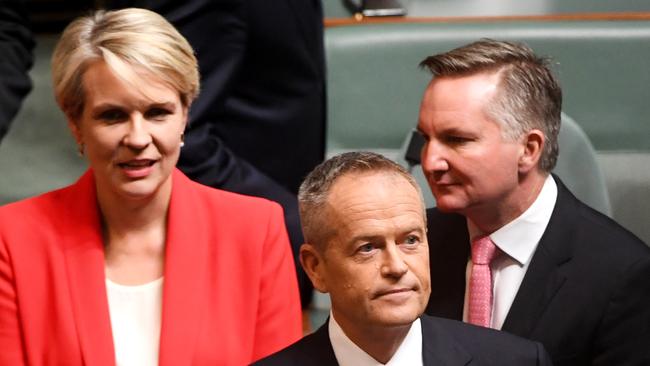
Bill Shorten’s key lieutenants will retaliate publicly if the review of Labor’s election defeat “scapegoats” the former leader and blames the result on his unpopularity and poor campaigning, reigniting tensions inside the party’s factions.
Victorian Right members met on Wednesday night, ahead of the report being handed to the ALP national executive in Melbourne on Thursday, to raise concerns that Mr Shorten would be burdened with too much of the blame for the “collective” loss.
The election post-mortem, led by Jay Weatherill and Craig Emerson, will put a blowtorch on the ALP campaign machine, which Labor MPs concede ran one of the worst elections since Mark Latham’s 2004 defeat.
READ MORE: Labor loss more than franking credits: Bowen | ‘Climate failures cost us’ | Shorten: I misread the mood in Queensland, WA | Bramston: ALP should have left Albanese on the shelf | ALP denied Shorten’s cry for help
Sources close to Mr Shorten said he had not been treated with “much respect” through the process and the former leader regretted not lodging a formal written submission, which he could have publicly released.
The Australian has been told Mr Shorten’s supporters will waste no time in slapping down the review if it is a “hatchet job”.
Mr Shorten, one of 120 people interviewed during the Labor review process, had been working behind the scenes with supporters to convince the review team not to make him a scapegoat.
A right-faction source said there was “unhappiness” about members of the executive being treated as a “rubber stamp”, given previous election post-mortems were reviewed and not immediately released.
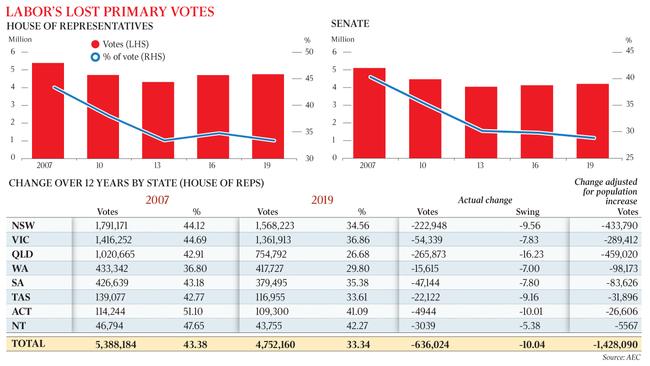
Shorten loyalists have threatened to release public statements on Thursday if the review unfairly targets the former leader.
“If the report is considered unfair scapegoating this will become a bigger issue/fight during the course of the day,” a source said in a text message to The Australian.
Senior Labor sources said the party must reposition its climate change policies to win back regional voters, as analysis by The Australian shows the party has effectively lost 1.428 million primary votes since Kevin Rudd’s 2007 election victory, allowing for population increases.
Highlighting the fragility of Anthony Albanese’s frontbench, Chris Bowen, architect of the unpopular franking credits and negative gearing tax policies, refused on Wednesday to accept that Labor’s targeting of older Australians was solely to blame for the May 18 defeat.
Labor’s health spokesman, who will deliver the inaugural Paul Keating Lecture in Sydney on Thursday night, also did not support the franking credits policy being dumped and said it would be a mistake to blame Mr Shorten for the loss. It was also too simplistic to blame one policy or a group of policies.
“We struggled with traditional Labor Party voters, Labor Party supporters who, you know, blue-collar workers who don’t have franking credits, who aren’t retired,’’ he said.
Writing in The Australian today, Queensland senator Anthony Chisholm, who sat on the election review panel, said Labor must re-examine its climate change policies and “can’t ignore the hammering regional towns have been giving Labor over the last decade”.“We must find a way to lower emissions without leaving regional communities behind,” Senator Chisholm said.
The Opposition Leader, who will have senior colleagues including Richard Marles and Penny Wong in Canberra on Friday for a National Press Club speech responding to the review, is understood to be adopting a “rear-vision mirror” approach to the report.
Mr Albanese, who will travel to Perth next week, is preparing two further values-statements speeches on the economy and democracy, in Brisbane on November 22 and Sydney on December 7.
The Australian understands he will adopt a small-target approach before the 2022 election, similar to the strategy used by John Howard before the 1996 election, avoiding premature announcements and overreach on policies.
After becoming leader, Mr Albanese announced he would bring forward the ALP national conference to late next year and is believed to be supporting a smaller policy platform. While Mr Albanese was not given the final review before it was handed to the national executive, it is understood he was briefed on the report so he could finalise his speech on Friday.
The Australian’s analysis comparing election results for 2007 with this year shows Labor’s House of Representatives primary vote fell by more than 16 per cent in Queensland and almost 10 per cent in NSW and Tasmania.
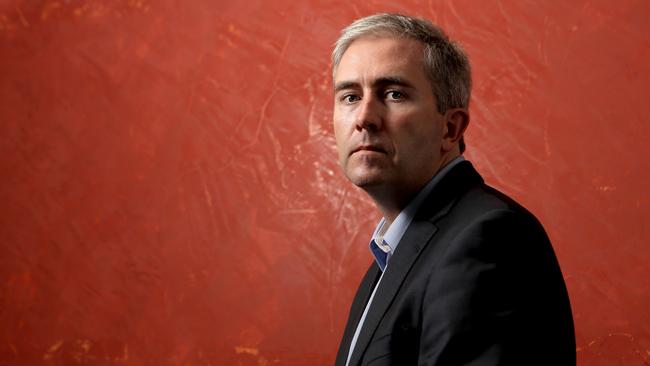
While Labor’s total primary vote in May was about 636,000 lower than its result in 2007, after allowing for population increases Labor’s vote was effectively 1.428 million lower.
Senator Chisholm, a key figure in Mr Shorten’s campaigns in central and north Queensland, highlighted the drop-off in support from Labor’s base in key regional electorates, warning that the trend must be reversed.
Senator Chisholm said that in the Queensland town of Bowen, a former Labor stronghold in the electorate of Dawson, the ALP’s primary vote had gone from 57 per cent in 2007 to 20 per cent on May 18, despite “leader visits, shadow visits, candidate visits and announcements”.
“Since the Liberal and National parties moved into a position of climate change hostility, the Labor vote in many parts of regional Australia has collapsed and is getting worse,” he said. “Whilst there are other reasons for the drop-off in the Labor vote over the last 10 years ... there is no doubt Labor’s climate change policy and ambiguity on the Adani coalmine led to just one in five Bowen locals voting Labor in May.”
Mr Albanese has targeted Queensland and Western Australia as battleground states where Labor must pick up seats to win government, making 17 visits to each since becoming leader.
Senior ALP sources said the party would have learned none of the lessons of the past unless the recommendations from the review accept that Labor’s continued pursuit of left-leaning inner-city voters at the expense of blue-collar workers had to be dumped.
A former Labor leader said the party’s “shortcomings at the last election were matters of leadership and policy”. “Unless there is a leader or national secretary who becomes the champion of specific reforms, an inquiry is not going to result in much change or even any change,” the former leader said.
Additional reporting: Simon Benson, Joe Kelly, David Tanner


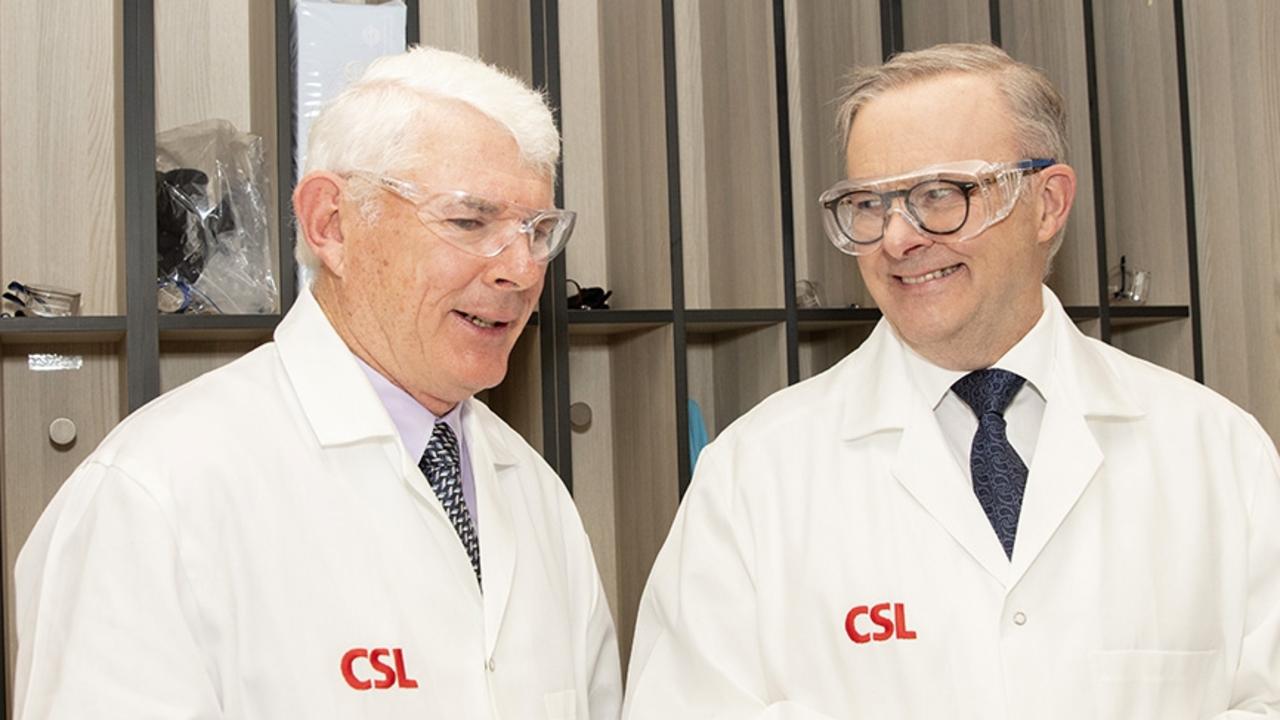
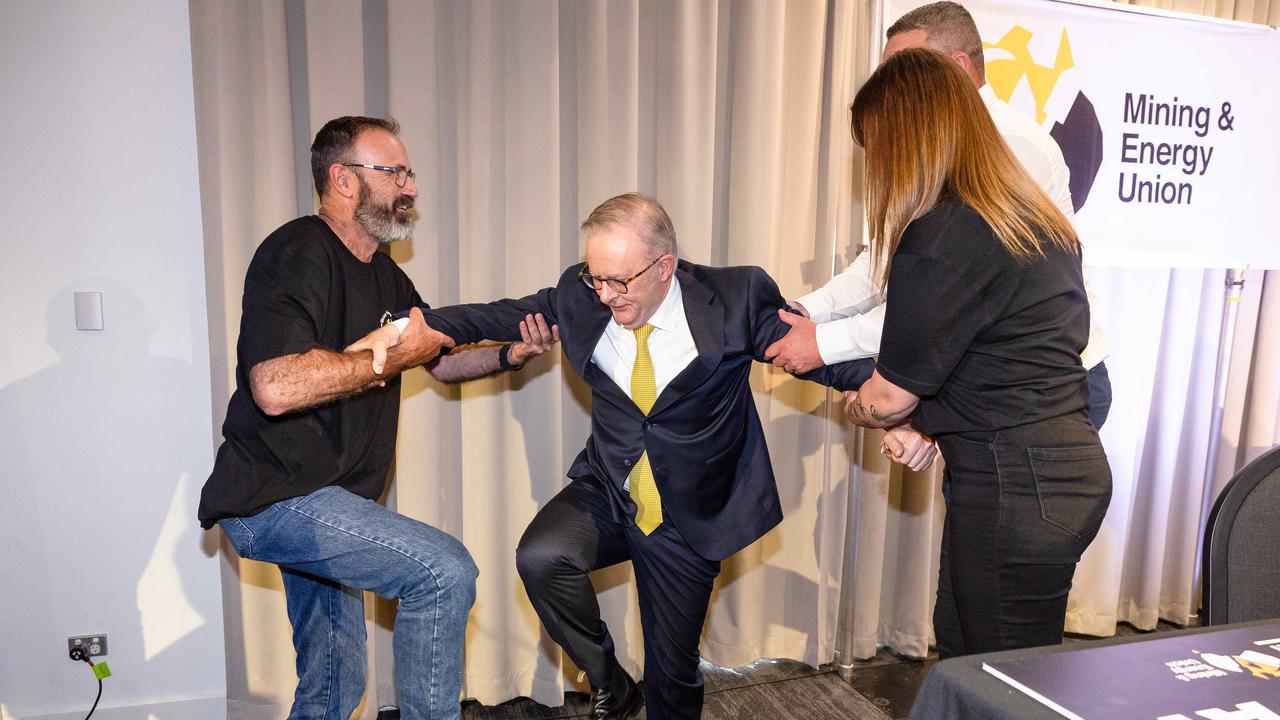
To join the conversation, please log in. Don't have an account? Register
Join the conversation, you are commenting as Logout